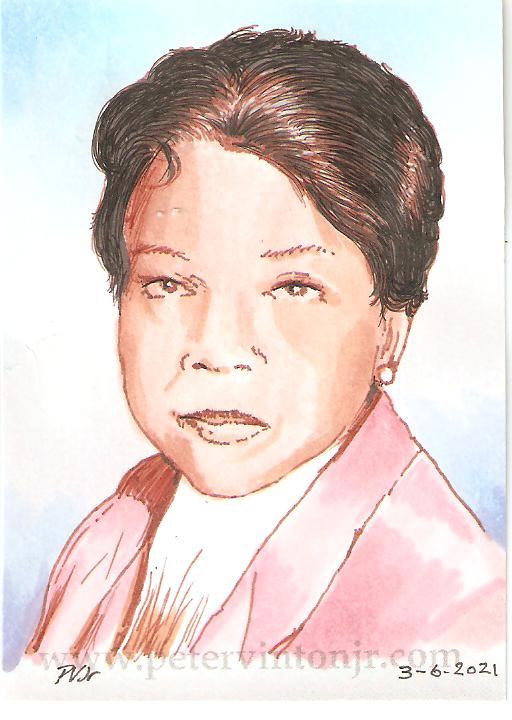
An ongoing illustrative history study
This piece originally posted 4/23/2021
Prelude | 78 | 79 | 80 | 81 | 82 | 83 | 84 | 85 | 86 | Email |
|---|
"Change can come but you cannot do it alone." --The Rev. Addie L. Wyatt
Born the oldest of eight siblings in 1925 Mississippi, Addie Cameron later moved with her family to Chicago and, despite her education, was unable to secure a "white collar" job and instead took a job with a meat packing plant. In 1941 she joined with the Amalgamated Meat Cutters and Butcher Workmen of North America, and by 1953 had become vice-president of Local 56 of the United Packinghouse and Food and Alliance Workers Union --the first black woman to hold such a position. In 1955 she and her husband Claude Wyatt, Jr., both became ordained ministers in the Church of God, and a year later founded the Vernon Park Church of God in Chicago.
From 1956 to 1968, Rev. Wyatt joined Martin Luther King in major civil rights marches and became the principal labor adviser to the Southern Christian Leadership Conference (SCLC). Rev. Wyatt participated in the March from Selma to Montgomery, the March on Washington, and --perhaps most significantly-- the "Freedom Sunday" demonstrations in Chicago. In 1963 Wyatt was appointed by Eleanor Roosevelt as a committee member on the Labor Legislation Committee of the Commission on the Status of Women.
Wyatt's accomplishments helped to redefine and expand women's roles within the general labor movement. She was named among Time Magazine's Women of the Year in 1975, and Woman of the Year by Ladies' Home Journal in 1976. In 2016 the Addie Wyatt Center for Nonviolence Training in Chicago was founded, honoring her legacy and contributions to the Chicago Freedom Movement:
https://www.addiewyattcenter.org/history-and-mission
Next page - Lesson 83: Melnea Agnes Cass